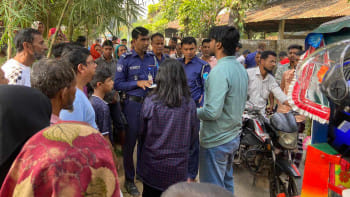KENDRICK LAMAR'S MASTERPIECE

With fantastic album drops from Lupe Fiasco and Death Grips, and with Kanye West dropping later this year, 2015 is already shaping up to be a great year for hip-hop. Adding to this list of albums (and undeniably sitting at the top) is Kendrick Lamar's follow-up to his critically acclaimed 2012 album "good kid, m.A.A.d city". Kendrick has always focused more on lyrical content and narrative flow than flashy gimmicks. Combining traditional hip-hop with jazz, funk and soul music, "To P*mp a Butterfly" is Kendrick Lamar at his creative best.
"Good Kid" was a concept album telling the story of a youth from Compton and his numerous brushes with gang violence. "TPaB" goes beyond that and flows more like a stream of consciousness album with snippets and stories where Kendrick raps about his thoughts on a wide range of topics like fame, politics, American youth, black culture, slavery, oppression, depression and religion. At almost 80 minutes long, "TPaB" is a sprawling epic of concepts and ideas that in less capable hands would seem like a mess.
In the opening track "Wesley's Theory", Kendrick makes his influences clear with samples from funk legend George Clinton accompanied by bass from the talented Thundercat. This along with the next two tracks takes jabs at stereotypical, recently-famous rappers who only rap about money and women, a fate some predicted for Kendrick himself. This is evident in the upbeat, radio-friendly track "King Kunta" referencing Kunta Kinte, a famous 18th century slave. The irony of the title is not lost on Kendrick as it means "King of the Slaves", acting as a reality-check to all those rappers who think they've beaten the system and now are kings.
These self-criticisms and double standards also serve as a recurring theme in the album. In "The Blacker the Berry", an emotionally charged rant against racism, he starts every verse with "I'm the biggest hypocrite of 2015." In "Hood Politics", Kendrick blames the government for their apathy towards the ghettos and how it forces young black men to take up criminal life to survive, but then admits that if it wasn't for the dream of "making it out" he probably wouldn't be where he was.
Kendrick's idea of fame is full of doubt and self-loathing, as shown in his breakdown in "u", where he feels like he's abandoned his friends and family as he deals with "survivor's guilt." In another track called "How Much a Dollar Cost" he recounts a time when he refused to give a dollar to a homeless man, only to later find out he was talking to God and that one dollar could have granted him salvation.
Throughout the album, Kendrick reveals parts of a poem that he ultimately recites in full at the closing track called "Mortal Man". Midway through the track Kendrick starts a conversation with Tupac Shakur, one of his idols and inspirations for "TPaB". The audio for Tupac's voice is from an actual interview from November 1994, just two weeks before he was shot and killed. He and Tupac converse about life, poverty and sanity, issues still very relevant 20 years later. Kendrick's lyrics are insightful and thoughtful and touches upon so many aspects of life that it's impossible for one review to cover. Whether it is a hip-hop masterpiece is up for debate, but it is most definitely the best album of the year for me.


 For all latest news, follow The Daily Star's Google News channel.
For all latest news, follow The Daily Star's Google News channel. 



Comments